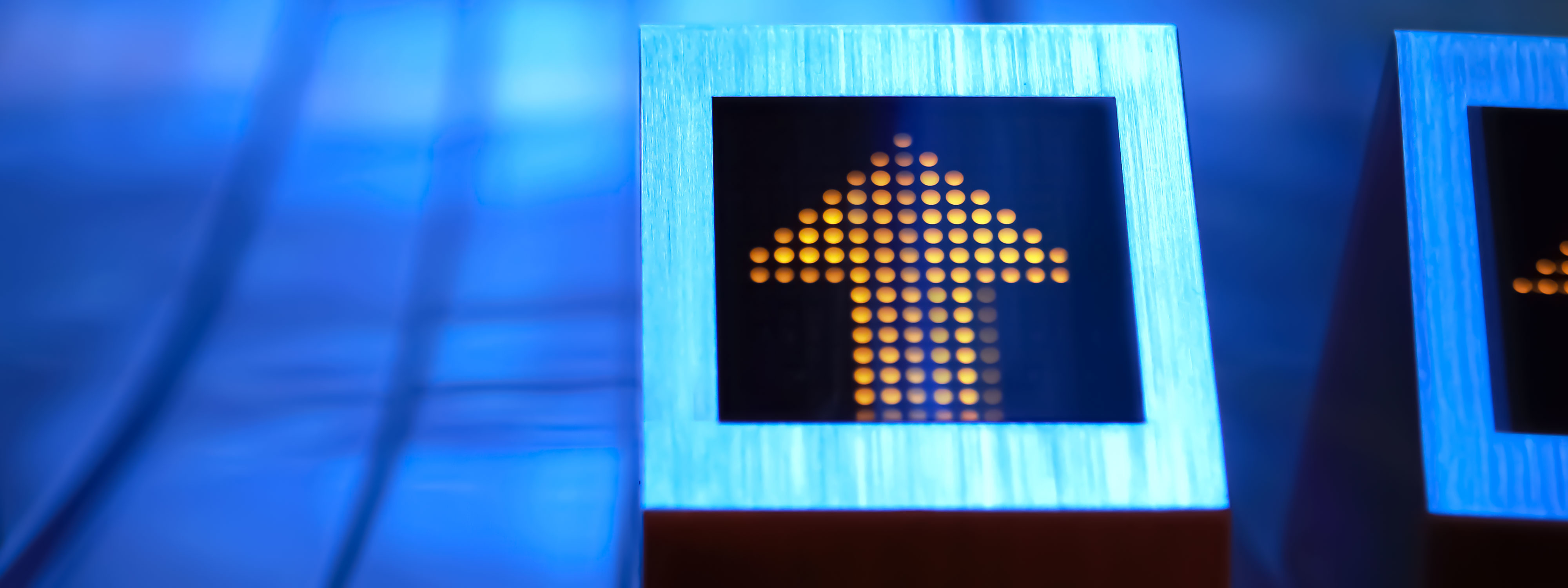
DOJ Antitrust Division quietly walks back prior administration-era support of Standard Essential Patent holders
13 min read
The Department of Justice's Antitrust Division has taken a first step in changing its view of IP rights, particularly where Standard Essential Patents ("SEPs") are at issue. Under the Trump Administration, the Division's policy swung in favor of SEP innovators over standard-setting organizations and implementers/patent licensees. It now seems that the Division's policy may be swinging back.
In 2015, the Division issued a Business Review Letter ("BRL") approving a standard-setting policy that made it difficult for SEP holders to seek injunctions and limited SEP holders' flexibility in royalty negotiations with licensees. The Division's position changed abruptly in 2020, when it issued an "extraordinary" supplement to the 2015 BRL, purportedly clarifying that the Division did not support limiting the rights of SEP holders to seek injunctive relief or negotiate reasonable royalty rates. The 2020 Supplement effectively gutted the 2015 BRL.
But, in April 2021, in another unconventional move, the Division quietly "reclassified" the 2020 Supplement as mere "advocacy," rather than formal guidance. Though seemingly administrative, this reclassification defangs the 2020 Supplement. The 2015 BRL may once again be cited as persuasive authority in support of limiting the legal recourse available to SEP holders.1
The Division's unusual move of downgrading a prior statement surely hints that there is more than mere housekeeping at play. The depth and breadth of the Division's intent is not yet clear, but both SEP holders, implementers and potential licensees should watch this space. This article provides a deeper look into these changes and what this could mean for SEP holders and fair, reasonable and non-discriminatory ("FRAND") licensees.
I. IEEE's Request for Antitrust Clearance for Policies that Limit SEP Holders' Rights, the Division's 2015 BRL and the 2020 Supplement
In 2015, one of the tech world's leading standard-setting organizations (the Institute of Electrical and Electronics Engineers, or "IEEE") sought preliminary guidance on a proposed change to the IEEE's IP policy from the Division.2 In seeking a BRL, businesses seek the Division's review of proposed business conduct. After reviewing the request and supporting information, the Division may issue a "no action," "decline to advise" or "probable challenge" letter indicating whether the Division would prosecute such behavior as anticompetitive.3 The DOJ has never prosecuted a company for antitrust violations after granting a "no action" letter—meaning that a BRL effectively provides de facto antitrust immunity from DOJ prosecution.4 (For more information on BRLs, see For COVID-19 Competitor Collaborations, DOJ Antitrust Division's "Business Review Letter" Offers Easy and Likely Effective Antitrust Protection.)
IEEE seeks antitrust clearance for policies limiting rights of SEP holders; Division grants BRL. IEEE sought antitrust clearance for two main features of its proposed policy revisions: (1) a policy barring (except in certain circumstances) SEP holders from seeking or achieving injunctive relief from potential FRAND licensees accused of infringing the SEPs, and (2) a policy laying out a framework that could have the effect of limiting SEP holders' ability to define a FRAND rate for negotiations with potential licensees.5
In February 2015, the Division granted IEEE a BRL for these two restrictions on participation in IEEE standard-setting in which the Division concluded that IEEE's proposed policy would potentially "benefit competition and consumers by facilitating licensing negotiations, mitigating holdup and royalty stacking, and promoting competition among technologies for inclusion in standards."6 This 2015 BRL was consistent with the Division's view on these issues more generally. At the time, the DOJ and FTC were aligned on patent and antitrust policy with respect to SEP holders, believing that failure to agree to FRAND terms often resulted in extended litigation and hurt consumers in the end.7
Over the next five years, many industry participants relied on the 2015 BRL, which was read as an endorsement of IEEE's policies, when negotiating patent licenses.8 And foreign governments and enforcement agencies similarly relied on the 2015 BRL as an authoritative interpretation of DOJ policy, reading it as DOJ support for the revised policy and curtailing injunctive remedies.9
2017 brings a new administration and changes in the Division's approach to SEP holders. After the 2016 administration change, the Division's views on SEP holder rights and FRAND licenses shifted away from those held by the former administration. The Assistant Attorney General Makan Delrahim made clear his intent to put his stamp on the Division's policy, viewing an alleged breach of a FRAND obligation as a contract issue only, rather than as a potential antitrust injury. Delrahim argued that patent holders should be able to seek injunctive relief and that "patent holdup"10 was not an antitrust issue.11
Consistent with this new philosophy, in 2019, the Division released a policy setting forth its view that the courts should apply traditional patent law to issues of infringement of SEPs subject to FRAND commitments, rather than apply special rules to SEPs (for instance, limiting an SEP holder's right to seek injunctive relief).12 The new policy reasoned that "[a] balanced, fact-based analysis, taking into account all available remedies, will facilitate, and help to preserve competition and incentives for innovation and for continued participation in voluntary, consensus-based, standard-setting activity."13
The Division reinforces its changed view of SEP policy with an unprecedented BRL Supplement and advocacy before US courts. For five years, industry participants and foreign enforcers invoked the 2015 BRL as a DOJ endorsement of IEEE's policies—rather than just a statement that IEEE's policies were not anticompetitive.14 The Division issued a Supplemental Response to the 2015 BRL in September, 2020, to unequivocally state that it did not endorse such patent policies. "We [the Division] take the extraordinary step to supplement the 2015 [BRL] primarily because we have learned that our 2015 [BRL] has been cited, frequently and incorrectly, as an endorsement of the IEEE Policy, which was not our purpose or intent."15 The 2020 Supplement also stated that the 2015 BRL was incorrect in "anticipating that ‘holdup' would be a competitive problem" and noted that courts have found SEP holders are entitled to injunctive relief.16
The 2020 "Supplemental Response" was the first time that the Division had ever issued a supplemental update to a BRL. This break from prior policy statements, coupled with the Division's vocal policy change on its approach to SEP and FRAND rights generally, caused the 2020 Supplement to be widely interpreted as an exercise of the Division's efforts to ease restraints on patent holders.17
The Division also increased its participation in pending litigations on the subject. Consistent with the Division's position in the 2020 Supplement, from 2017 to 2020, the Division filed statements of interest in at least five antitrust cases involving allegations that SEP holders engaged in anticompetitive conduct by failing to provide patent licenses on FRAND terms or similar conduct leading to patent holdup.18 In each of these cases, the Division took the position that the patent holders' conduct did not violate the antitrust laws and the patent holders should be allowed to pursue injunctive relief or negotiate favorable terms. Perhaps most significantly, in 2019, the Division filed a statement of interest in FTC v. Qualcomm, which sought equitable relief prohibiting Qualcomm, an SEP holder, from using its monopoly power to force a "no license, no chips" policy on customers and for exclusive dealing, in which the Division requested a hearing on the remedy should the court find liability.19
Also in 2019, the Division filed an amicus brief in Qualcomm in its Ninth Circuit appeal opposing the FTC and arguing that the verdict reached in favor of the FTC at the district court was erroneous.20 The Ninth Circuit ultimately vacated the district court's decision, ruling against the FTC and finding that a unilateral refusal to license SEPs was not an antitrust violation.21
II. The DOJ's Recent Reclassification of the 2020 Supplement as "Advocacy" Rather than Formal Guidance Walks Back the Division's Position in the 2020 Supplement
In April 2021, merely seven months after the Division issued the 2020 Supplement, the Division unceremoniously reclassified the 2020 Supplement from a BRL "supplement" to mere "advocacy." In moving it from the Business Review section to the Advocacy section of the Antitrust Division website, the Division explained:22
The DOJ is restoring the 2015 [BRL] to its original state by moving the 2020 [Supplement] to the competition advocacy portion of our website, and removing a watermark that had been placed on the 2015 [BRL]. This action is a return to previous practice that is consistent with existing department regulations.23
While seemingly administrative, this move defanged the 2020 Supplement and effectively reinstates the 2015 BRL as the operative guidance on the policies at issue.24 Consistent with the apparent current trajectory of US antitrust policy more generally, the Division's change may signal more than a simple departure from the prior administration's stance on a single standard-setting organization's ("SSO") policy—this could be the beginning of a substantive shift in the Division's position in favor of applying the antitrust laws more aggressively to challenge SEP holders' conduct.
III. The Saga Signals a Tougher Antitrust Stance from the Biden Administration on Antitrust Issues Involving SEPs
The issuance of the 2020 Supplement, followed by its recent reclassification (and effective restoration of the 2015 BRL), creates uncertainty for patent holders and licensees on a number of fronts. Substantively, it could mark a change in the Division's approach to antitrust issues involving SEPs. And procedurally, it creates uncertainty for businesses seeking assurance through the BRL process because this newly minted potential for "supplementation" and "reclassification" makes the BRL process less definite.
For SEP holders and standards implementers, the original 2015 BRL found that the IEEE's policy would promote efficient adoption and licensing of those patents, particularly since the policy included limits on patent holders seeking injunctions for infringement and other methods to prevent patent holders from holding up the licensing process. The 2020 Supplement starkly reversed this, placing more focus on the potential for licensees, rather than patent holders, to hold out for lower royalty rates.25 The 2020 Supplement also emphasized that licensing issues were contract issues rather than antitrust problems.26 Now, it is not clear whether the reclassification of the 2020 Supplement as "advocacy" formally retracts the previous administration's statement that, for example, SEP holders should be entitled to injunctions.27Acting Assistant Attorney General ("AAG") Richard Powers' statement that the Division is "restoring" the original 2015 BRL may provide further confusion for SEP holders, licensees, and SSOs as to the remedies available for potential infringement and whether the Division may take the view that SEP holders' and SSOs' actions may run afoul of antitrust laws.
The reclassification appears to continue the theme of a tougher antitrust stance from the Biden Administration. President Biden has not yet selected a permanent AAG to lead the Division, so nothing is certain. It is possible, however, that we will see a "balanced position toward bad behavior [from SEP holders]."28 It is also too soon to say whether the reclassification means the Division will take an active role in litigation on these issues like the previous administration. However, if the Division begins to advocate a position in court different from what we have seen over the past five years, there will be even greater uncertainty as the risk of conflicting judicial decisions increases. SEP holders, SSOs, and licensees must all closely watch this space as we expect to see more indication from the Division about how aggressive it will be in advocating its position before the courts, with enforcement priorities and, fundamentally, what its position will be.
1 See Matsushita Elec. Indus. Co. v. Cinram Int'l, Inc., 299 F. Supp. 2d 370, 379 (D. Del. 2004) (granting summary judgment on antitrust claims in part because court was "strongly persuaded" by the Antitrust Division's Business Review Letter, stating the Division's intention not to seek enforcement action against patent pool at issue); USDep't of Just., Antitrust Division Manual (5th Ed.) § H(1)(g)-(h) (2012), https://www.justice.gov/atr/file/761166/download.
2 Letter from Michael A. Lindsey, Counsel to Institute of Electrical and Electronics Engineers, Incorporated, to William J. Baer, Assistant Att'y Gen. USDep't of Just. (Sept. 30, 2014) [hereinafter IEEE Request], https://www.justice.gov/sites/default/files/atr/legacy/2015/02/17/311483.pdf.
3 US Dep't of Just., Antitrust Division Manual (5th Ed.) § H(1)(f)-(g) (2012), https://www.justice.gov/atr/file/761166/download.
4 J. Mark Gidley, Martin M. Toto, Kathryn Jordan Mims, Jaclyn Phillips, Trina Shek Rizzo, Michael Mahaffey, For COVID-19 Competitor Collaborations, DOJ Antitrust Division's "Business Review Letter" Offers Easy and Likely Effective Antitrust Protection, WHITE & CASE (Apr. 22, 2020), https://www.whitecase.com/publications/alert/covid-19-competitor-collaborations-doj-antitrust-divisions-business-review .
5 IEEE Request, supra note 2 at 12.
6 Letter from Renata B. Hesse, Acting Assistant Attorney General, U.S. DOJ Antitrust Division., to Michael A. Lindsey (Feb. 2, 2015) [hereinafter 2015 BRL], https://www.justice.gov/atr/page/file/1386871/download.
7 US Dep't of Just. & U.S. Pat. & Trademark Off., Policy Statement on Remedies for Standards-Essential Patents Subject to Voluntary F/RAND Commitments (Jan. 8, 2013), https://www.justice.gov/atr/page/file/1118381/download; Standard Essential Patent Disputes and Antitrust Law: Hearing Before the S. Sub Comm. on Antitrust, Competition Policy and Consumer Rights, 113th Congress (2013) (statement of the Fed. Trade Comm'n), https://www.ftc.gov/sites/default/files/documents/public_statements/prepared-statement-federal-trade-commission-concerning-standard-essential-patent-disputes-and/130730standardessentialpatents.pdf; see 2015 BRL, supra note 6 at 6, 11.
8 See David Teece and Edward Sherry, An Overdue Re-Examination Of Antitrust Policy Toward SEPs, LAW360 (Feb. 1, 2018), https://www.law360.com/articles/1006361/an-overdue-re-examination-of-antitrust-policy-toward-seps.
9 See Letter from Makan Delrahim, Assistant Attorney General, U.S. DOJ Antitrust Division, to Sophia A. Muirhead, Institute of Electrical and Electronics Engineers, Incorporated (Sept. 10, 2020) [hereinafter 2020 Supplement], https://www.justice.gov/atr/page/file/1315291/download.
10 When an SEP holder uses its SEP status to seek unreasonably high royalties from licensees who have already invested in technology that relies on the standard. See Terrell McSweeny, FTC Comm'r, Holding the Line on Patent Holdup: Why Antitrust Enforcement Matters (Mar. 21, 2018), https://www.ftc.gov/system/files/documents/public_statements/1350033/mcsweeny_-_the_reality_of_patent_hold-up_3-21-18.pdf.
11 See Makan Delrahim, Assistant Att'y Gen., Antitrust Div., U.S. Dep't of Just., The Long Run: Maximizing Innovation Incentives Through Advocacy and Enforcement, Remarks as Prepared for the LeadershIP Conference 6-10 (Apr. 10, 2018), https://www.justice.gov/opa/speech/file/1050956/download; Makan Delrahim, The "New Madison" Approach To Antitrust And Intellectual Property Law, 1 J.L. & INNOVATION 1, 2, 5-6 (2019).
12 Policy Statement On Remedies For Standards-Essential Patents Subject To Voluntary F/Rand Commitments, U.S. DEP'T OF JUST., (Dec. 19, 2019), https://www.justice.gov/atr/page/file/1228016/download.
13 Id. at 7.
14 See 2020 Supplement, supra note 9 at 1.
15 Id.
16 Id. at 4.
17 See Matthew Perlman, Does DOJ's Rebranding of Patent Policy Letter Hint at More?, LAW360 (May 5, 2021) [hereinafter Perlman], https://www.law360.com/competition/articles/1376134/does-doj-s-rebranding-of-patent-policy-letter-hint-at-more-?nl_pk=7e23911e-8e84-4b33-8b93-42a470e08d57&utm_source=newsletter&utm_medium=email&utm_campaign=competition.
18 See Statement Of Interest Of The U.S. of Am., Lenovo (U. S.) Inc. v. InterDigital Tech. Corp., 1:20-cv-00493-LPS (D. Del. Apr. 13, 2020), ECF No. 13; Statement Of Interest Of The U.S., Cont'l Auto. Sys. Inc. v. Avanci LLC, 3:19-cv-02933-M (N.D. Tex. Dec. 12, 2019), ECF No. 317; Statement Of Interest Of The U.S., Lenovo (U. S.) Inc. v. IPCom GmbH & Co., KG, 5:19-cv-01389 (N.D. Cal. Mar. 14, 2019), ECF No. 46; Notice Of Intent To File A Statement Of Interest Of The U.S. Of Am., U-Blox AG v. InterDigital, Inc., 3:19-cv-00001-CAB-BLM (S.D. Cal. Jan. 1, 2019), ECF No. 27.
19 Statement Of Interest Of The U. S. Of Am., FTC v. Qualcomm Inc., 5:17-cv-00220 (N.D. Cal. Jan. 17, 2017), ECF No. 1487.
20 Br. for The U.S. of Am. as Amici Curiae Supporting Appellants, FTC v. Qualcomm Inc., 969 F.3d 974 (9th Cir. 2020).
21 FTC v. Qualcomm Inc., 969 F.3d 974 (9th Cir. 2020).
22 See Comments to States and Other Organizations, U.S. DEP'T OF JUST., https://www.justice.gov/atr/comments-states-and-other-organizations.
23 Ben Remaly, DOJ appears to walk back Delrahim's IEEE business review letter, GLOBAL COMPETITION REVIEW (Apr. 15, 2021) [hereinafter Remaly], https://globalcompetitionreview.com/gcr-usa/department-of-justice/doj-appears-walk-back-delrahims-ieee-business-review-letter; see also Perlman, supra note 17.
24 Id.
25 See 2020 Supplement, supra note 9 at 8-9.
26 Id. at 4-5.
27 Remaly, supra note 23.
28 Alex Wilts, Baer expects "more responsible" approach to SEP holders during Biden administration, GLOBAL COMPETITION REVIEW (Jan. 25, 2021), https://globalcompetitionreview.com/gcr-usa/frand/baer-expects-more-responsible-approach-sep-holders-during-biden-administration.
White & Case means the international legal practice comprising White & Case LLP, a New York State registered limited liability partnership, White & Case LLP, a limited liability partnership incorporated under English law and all other affiliated partnerships, companies and entities.
This article is prepared for the general information of interested persons. It is not, and does not attempt to be, comprehensive in nature. Due to the general nature of its content, it should not be regarded as legal advice.
© 2021 White & Case LLP


